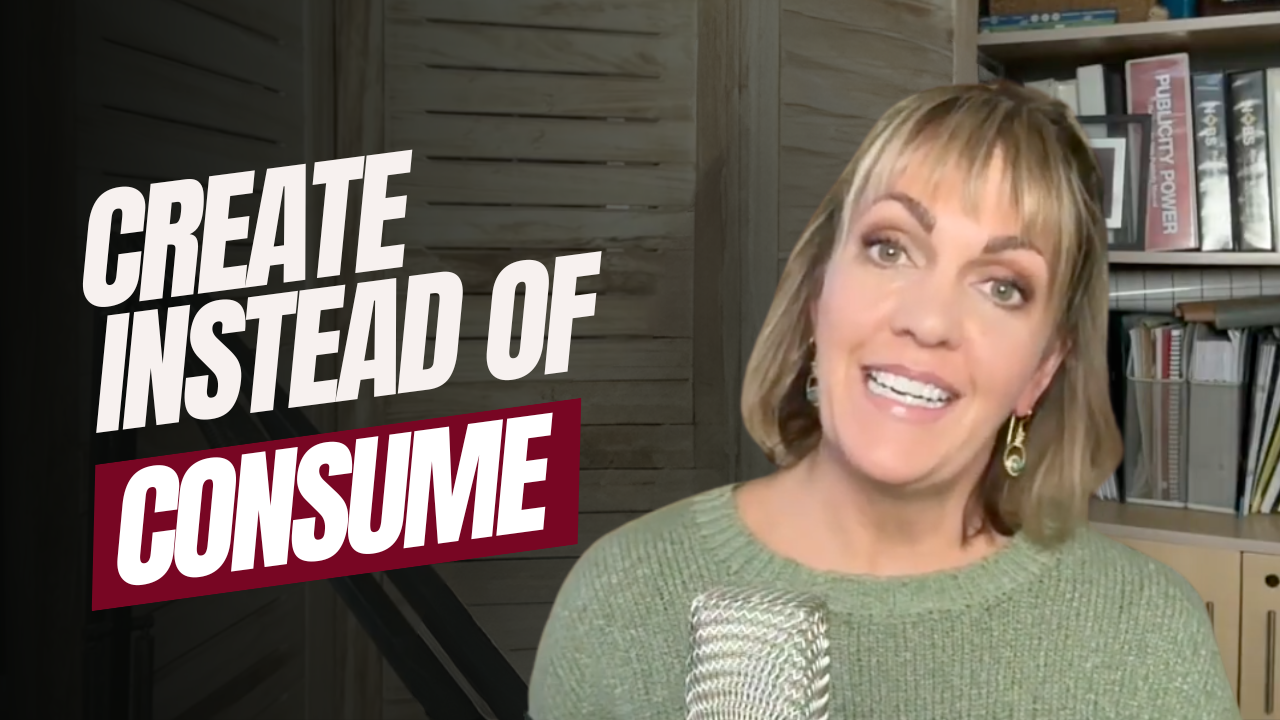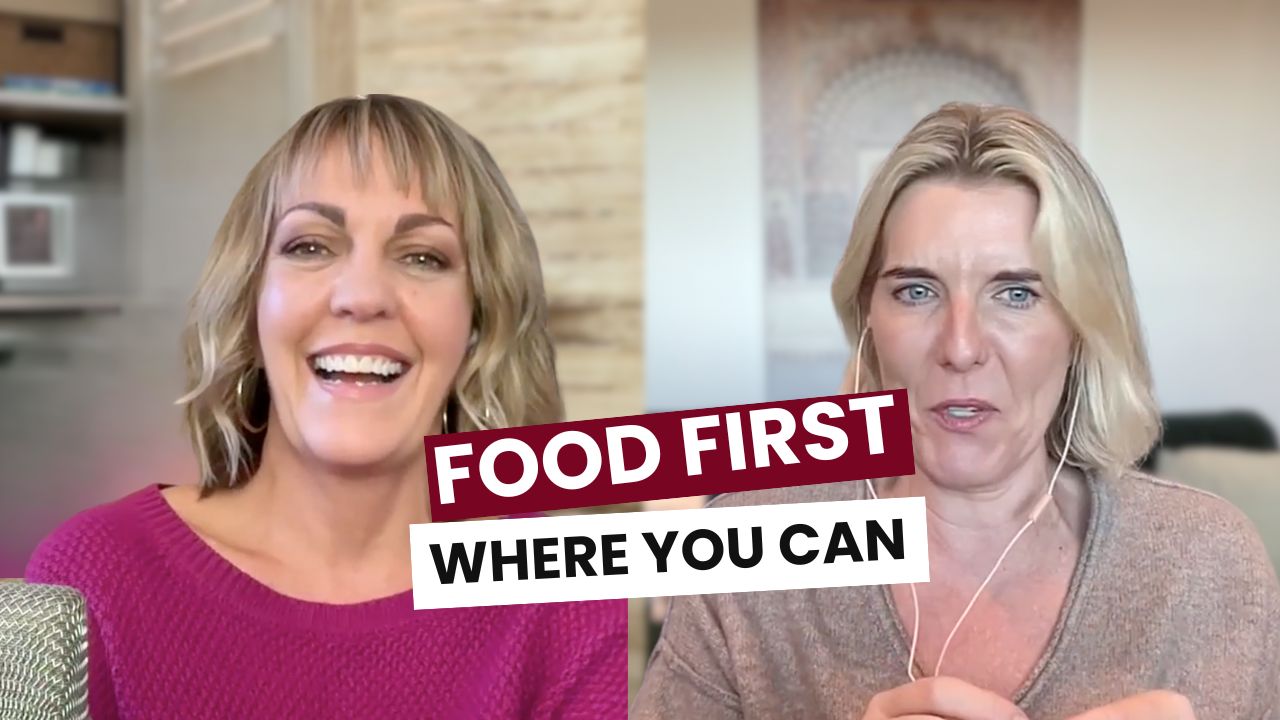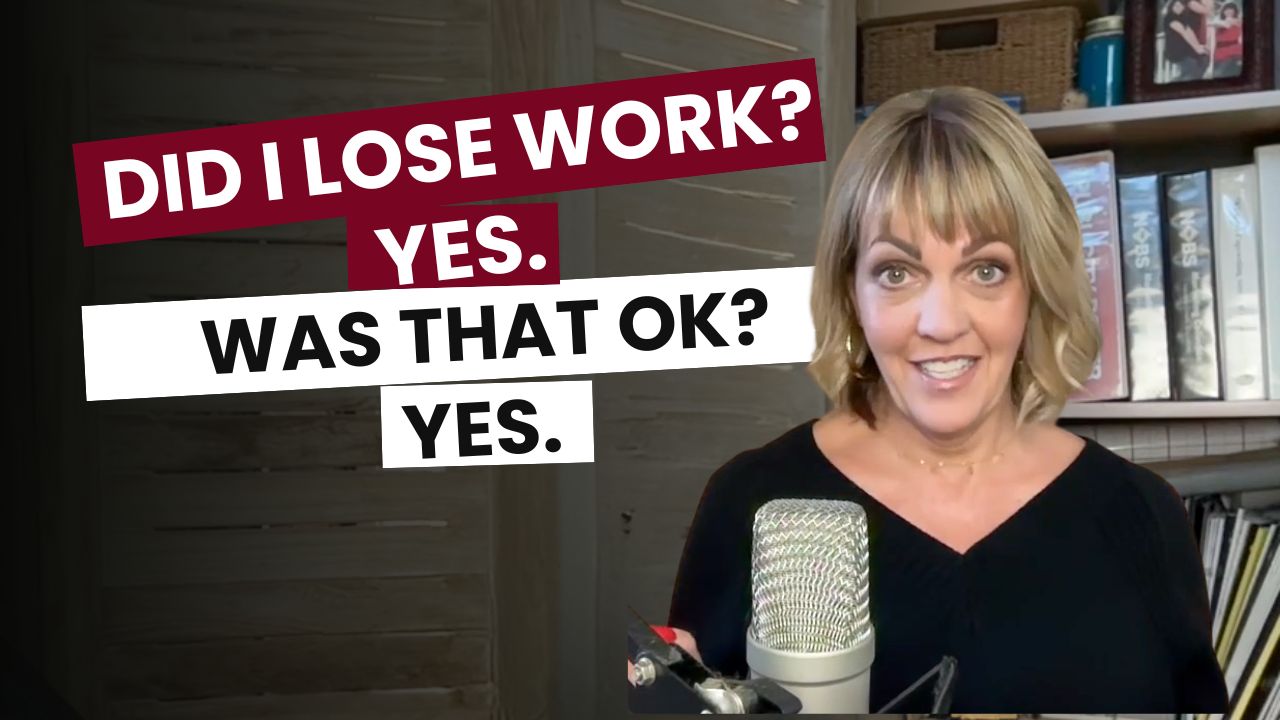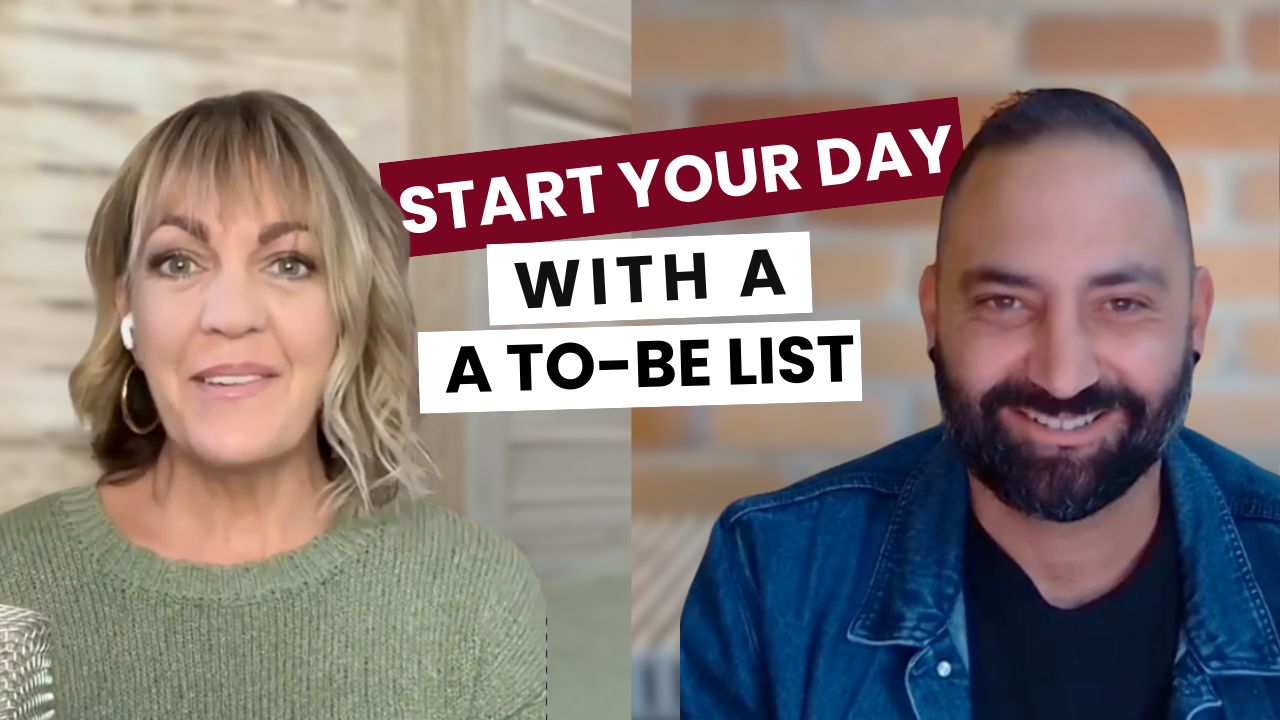Episode 50 Transcript
Heather
Hello dear listeners, welcome back to episode 50. So I was thinking the other day about a little concept that I learned about quite a while ago. And I was trying to remember where I was when I learned it. I think I was in a seminar, because my background I used to run seminars for different speakers, you know, behind the scenes. And I also liked to attend them. I liked going to conferences. And I think this one might have been something that I was working at, something tells me, and I was probably the back of the room on the logistics desk, sitting there plugged in, doing my work, and then this little saying floated by. And the concept is to earn more money, find a way to serve more people, and provide more value. To earn more money, find a way to serve more people and provide more value. And
I remember hearing that it was right around the time. Also, there was quite a popular thing when all these e-courses and membership sites were becoming quite trendy, which was the one to many model, right? So recording your knowledge once and then reselling it over and over and over again in the way of like, um, a membership or an e-course. So I was sort of thinking, Oh, is that what that means? Is that what that saying means? Like, do I, is that how I find a way to serve more people?
Um, I know it really wasn't because I remember I was trying to crack the membership code and, you know, get that out there and sell courses and struggling at that and now look, that could have just been me. I mean, it, you can definitely sell your knowledge, right. And do really, really well at it. But for me, I was sort of just kind of hung up on this. How do I build that concept? You know, how do I provide more value and reach more people or provide more value to more people?
So maybe, you know, that could be one vehicle, but maybe not always. Another thing most people think about too, is looking at stacking in more of what you offer, like more of your offers and what you sell, right? So adding in bonuses and putting a value on each of those things that you're bundling into what you sell. And by the way, that's like, that's a great approach. That's very much marketing, a big marketing one-on-one concept, right? Where you develop an offer and then you stack value into it. That's excellent. And that can definitely help you increase your prices. But I wanted to go bigger. I wanted to think about maybe the opposite. Is the opposite true of stacking value and coming up with offers and thinking of, you know, your next e-course, especially for those of us in service-based businesses? So perhaps it's important to think bigger and think differently.
So as my company grows, I sort of had this like, I'm gonna call it like a little mini epiphany. Instead of focusing on what I sell, how about I focus on how we serve? So hear me out, I'm gonna give you some ideas on that. So instead of just focusing on the bundles and the offers and the, you know, what you're selling, how about instead focus on how you serve your clients? Now, nothing new. I know you've probably heard that before that sort of, you know, focus on who you serve or serve other people. Um, but I recently kind of got it. It clicked into my brain and I let it sink in and I'm now building systems around this concept so I can treat my clients better than when I was small. So as I am growing, how can I actually serve clients better? Even though I'm growing and I'm, you know, more and more time poor.
And I want to make sure that I build systems and a way to continue to treat my clients as individuals, you know, what they care about and what they stand for. It's a hard task for sure to take on, especially as you're growing. It's like, well, part of being a small business owner is that you can have that really, you know, one-on-one touch point. But the second you grow beyond yourself and you have team around you, you have to have systems and you have to expand beyond yourself. And how do you serve better at that level?
So I have six things that I want to run by you guys that I'm creating to have more value, to serve more people with better value. Yes, totally different from the e-course, from the one to many and many aspects, but I want you to hear me out because maybe some of this can help you guys as well. So number one is out of the six things is to give hope, provide hope, motivate and inspire.
Acknowledge your client struggles. Remind them of how what they do makes a difference. I am thinking very clearly of a business owner I was working with the other day. Now, most of the project, my entire team was working with her on the project. You know, project manager checking in and different team members delivering different things. But I did have a call with her as part of the process. And in that call, although I gave training and value and how-tos, one of the most important things to have happened on that call was to be reminded of why she's doing her business. Because she was going through an incredible moment of overwhelm and really struggling with the new systems and some of the new marketing that she was implementing and bringing in. And she just needed a moment of, I guess, falling in love with her business again, or being reminded of why she does it. You know, I just read her a few reviews, for example, and she was like,
Wow, I do good things, don't I? I'm like, yes, you do. Yes, you do. So what if you guys could provide more hope to your clients, rekindle what they want in life or their business? Number two, surprises. You know, think back to when you were a kid. Hopefully you had a decent childhood and you had these moments of birthday presents and tooth fairy and Santa Claus and things that would just kind of come into your path that were really amazing surprises and the energy around that right was so much fun. Surprises you can absolutely do with your clients as well. So something that we are doing is sending letters. So if you've been a client of ours for a while, we have like these client anniversaries and a handwritten note in the mail. Another thing too, as you grow as a client with us and you kind of surpass the first client anniversary and you're with us for a couple of years, we literally send out a box of chocolates, like fancy, beautiful chocolates that we send out. And articles as well. From time to time, I'll see something that is interesting to somebody that I know that we're helping.
It might be all of our clients at once. It might be an individual, but just sending out an article or a white paper or just a tip that I suddenly see. And I think that person could benefit from that. Just surprises, right? So that's another thing that you might wanna be able to do is number one, give hope. So for me, I'm just really cognizant of that. Like when I'm speaking to somebody, if it's just a quick touch point on an email or a phone call with somebody, is there an opportunity to get them?
Hopeful again about what they're doing, especially if they're going through a hard time. Surprises, absolutely build that into your business. Like that's obviously something you can build more into your systems than hope, right? But you could build and hope, you could send out inspirational messages or ideas or little things along the path of your customer. Number three, get to know your clients and actually care about them. So this is something I'm definitely working on.
More and more because I am as a person, I'm very like direct, fast, you know, I just kind of get to it, get it done. And yeah, it's probably one of my more of my weaknesses. So I'm just learning how to have extra human touch points, you know, like learn who their kids are, find out their weaknesses and strengths when it comes to what you're selling them. So you can help them, you know, if you know that they have a weakness around something that you sell, how can you help them in that area?
If they have a strength, how can you acknowledge that strength that they have? Build them up around those weaknesses and acknowledge their strengths. I think back to a story. There's a woman, she's still around. I'm not sure what she's up to these days, but her name is Belinda Yabsley. And Belinda was on the speaking circuit when I first moved to Australia back in the day. And she was Mercedes Benz number one salesperson. From my remembrance of her conversations and, you know, her being a keynote speaker. She said that was not an overnight thing. That was very much a long-term play. She had a database of all her leads and her customers, and she would keep personal information about them, their kids, when their kids were going to graduate, special events coming up within the person's family. Like she would literally note, make mental notes, and then store this in her database.
And then she would just randomly reach out with cards or phone calls to people based on these pivotal life moments that they shared with her. And over time, she built this incredible client base that maybe weren't ready for a car three years ago, but then because of her relationship with them, not only bought a car for themselves, but then referred her onto their neighbors and their family and were repeat buyers as well. So that's a big part of getting to know your clients and really actually caring about them as people. The next is volunteering education and wisdom when you know it will help them. So there's a time and a place to charge for your knowledge. Absolutely, that is very important being in business. But when a current customer needs your help, offer it. Just jump in without being asked, look for ways to make their life easier. So I'm just thinking of a few people recently who I've been talking to, again, back to the story of the hope.
But you know, somebody was struggling with just finding the right database tool and went down this whole like wormhole of a big CRM system that was going to cost them a huge amount. And I just said, Hey, here's a great article on comparing that system with another system that might work better. And then they ended up going with a more inexpensive system, you know? So it's like, if you have this wisdom, which you do, because that's why you're in business, you have wisdom and expertise in a certain space. And in a lot of different areas in that space. Sometimes just little tiny knowledge bombs that you have that you can share can really profoundly help somebody save them time, money, give them more happiness in their business as well. So what are those things that you can just share? And again, you can build this into your systems as well. I mean, this can absolutely be something like, I have a spreadsheet of everyone that I've interviewed on my podcast. I have my clients, I have people that I wanna do business with.
notes on them and there is systems that I have with one of my team members to do outreach to these people. Very much you know driven by me but there's a system behind it to make sure it happens. Next we have so that is number four so far we have give hope number two is surprises number three is get to know who your clients are and actually care about them. Number four is to tier, you know, some great wisdom or education that you have that you just know, oh, that would help that person and don't be attached to it and charging it, charging for it, you know. Um, number five is introduce them to each other. This is another great concept as well for value. You as a business owner, whether you are online, whether you have a bricks and mortar, you probably have a community around you or people that you know. So when you know two clients that could help each other in business or personally,
Make an introduction, connect people, and do not expect anything in return, that's key. So I've been thinking again of somebody the other day that not yet a client of mine, maybe will be, but another client and friend of mine, like the two of them, the incredible synergy between the two to help them grow their businesses was just incredible. So straight away, before I even get this other person on as a client, I do an introduction email between the two of them.
So constantly be thinking about that connector piece of your personality and who you know, and can you connect people in your community with each other? And the last one is lead with value. There's been quite a few interviews coming up on this show, a couple in a row actually, where this is a big, huge theme, leading with value, giving without expecting anything in return. And even so, while I'm saying this to you guys, I'm thinking about a book from Gary Vaynerchuk, who it's an older book now.
Um, Gary is, you know, does all the vlogging and has a big digital agency in the States. And, uh, his book was called jab, right hook. And the idea was that you give, and then you ask. So very much, I think a big part of the whole value piece of providing more value to more people is providing value. So be thinking about that and lead with value. Some of the people that, um, perform the best with their marketing and if they do events.
They they stand on stage and they teach and they give a huge amount of value to the point where people are like I want to work with you and not the other way around where they're just asking for the sale straight off So yeah, you guys those are the six things. So I'll repeat them one last time To in order to help you earn more money find a way to serve more people with more value, right? That's ultimately what you do to earn more money So to do that to provide more value to more people give hope number one number two surprises
Number three, get to know who your clients are. Number four, volunteer up education and wisdom when it's appropriate and will help somebody. Number five, introduce your community to each other, your clients, your leads, your prospects. Number six, of course, lead with value. So how do you go about implementing all of this? Well, good systems absolutely can help. Like I was saying, whether it's spreadsheets or databases or reminders in your calendar, that will help.
and your team and training your team as well. So train your team on the why behind these points. Why do you wanna do these points? What's the reason behind them? So they also have a connection to these as well. Like when I build out some of the systems for the cards and the chocolates, as well as the spreadsheets and the outreach, I'm constantly changing or training somebody on my team on why we're doing this. What's the reason behind it? And then she gets excited and she's like, oh, we should do this or we should do this because she now understands how important it is. Now also you wanna find a team that cares about people. I know, like truly like the people that are gonna actually touch your customers, those are the ones that you want. You wanna make sure that they genuinely care about people. They don't have to absolutely share your personality and who you are. I mean, if you're extroverted, they could be introverted, but you want them to have that genuine care factor as well. And ultimately remember people, remember you based on how you made them feel.
People remember you based on how you made them feel. And this happens you guys when you care about them. They'll feel it, they'll totally feel it. So over to you guys. What tweaks can you make in your project management tools to your email sequences, to your CRM data fields of the information that you collect from your clients and your leads so you can continue to grow your business but maintain that human touch point.
Because I really feel like that's where the value piece comes in. That's how people are going to remember you, refer you as well, and stay with you longer. And maybe spend more with you too. Thanks you guys so much for listening. I'll talk to you next time.





